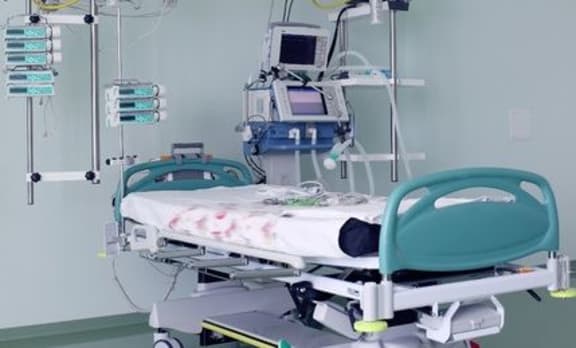Details have emerged of ''confrontational" leadership at a Christchurch hospital ward where a woman died and staff felt they could not speak out about their concerns.

Photo: 123rf
The information has been released by the health watchdog, which revealed it had faulted the same ward in the past for its "systems and culture" following the death of another woman.
All of these findings were made in a new report into the care of Mrs Richardson, a pensioner who died in 2013 after being given an antibiotic she was allergic to - despite warnings in her medical notes and on her Medic Alert bracelet.
Details about Mrs Richardson's death were revealed through an investigation by Health and Disability Commissioner Anthony Hill.
He said while a doctor and a nurse made individual clinical failures [at Princess Margaret Hospital], "I consider that there are systemic failures that directly contributed to those failures".
"This is not the first time that I have raised concerns about the systems and culture in the ward," he said.
In that case, a woman in her early 90s died after a Canterbury District Health Board medical team "failed to interpret and recognise the signs of a declining patient who was in pain".
In this new report, Mr Hill said:
"Canterbury District Health Board (CDHB) failed to ensure that services were safe for patients and clinicians."
In response to the findings, CDHB said:
"We regret that staff felt unable to communicate freely about issues regarding day-to-day operations on the ward, which largely focused on the charge nurse manager at the time; it would not have been easy to speak up."
'Chaotic' and 'confrontational'
The Health and Disability Commissioner (HDC) went on to highlight the pressures facing the doctor who wrongly prescribed the antibiotic Trimethoprim.
"Dr E (the registrar) has admitted her responsibility for the error, but noted the factors that made her vulnerable to making such a mistake.
"She pointed out issues such as the large patient workload, high patient turnover, and the requirement to support and supervise house officers. Dr E stated that the ward was at times chaotic, and that confrontational interactions with the charge nurse were a daily occurrence. She stated that she raised her concerns with senior staff."
The doctor told the inquiry team that the physical set up of the ward prevented her from concentrating on her job.
Mr Hill's report said:
"The office provided for the medical staff was directly off the reception area and had no door. As a result, the medical staff were constantly interrupted by the nurses, allied health staff, patients and family members."
Following the death of Mrs Richardson, CDHB carried out its own investigation through what it calls Root Cause Analysis (RCA).
Mr Hill draws attention to the RCA in his latest report.
"CDHB noted in its RCA that the staff interviewed had concerns over the skill mix on the afternoon shift owing to the acuity and complexity of patients, but this was not communicated to the supervising staff.
"The RCA noted that the staff expressed concern about the work environment on the ward, and that those concerns had been raised with the management in the past.
"The report stated: Staff felt unable to communicate freely about issues that they believe require attention and leadership regarding day to day operations on the ward."
'Major errors'
As part of the inquiry, Mr Hill sought expert clinical advice from a general physician and geriatrician, David Spriggs.
Speaking about the environment of the ward being described as confrontational, Mr Spriggs said:
"It is in just such an environment that major errors occur and I note from the Root Cause Analysis, the responsibility for reviewing this is with the Director of Nursing.
"I would hope that this is not considered to be purely a nursing issue but is a larger governance issue including medical staff, allied health and clerical staff."
Mr Hill made several recommendations about how Canterbury District Health Board could make improvements to patient care.
One suggestion was that it should "develop a process by which all staff are empowered to raise concerns about issues relating to patient safety, and the concerns are responded to and acted upon".
In direct response to Mr Hill's opinion, CDHB said:
"Staff are given the opportunity to share any concerns at the daily ward rounds and weekly interdisciplinary meetings. All wards have regular staff meetings ... staff are provided with workplace support personnel."
And in a statement it released to Radio New Zealand today, it said:
"We are sorry that our system failed to prevent the medication errors which had such devastating consequences for the patient and her family. The Canterbury DHB has apologised and offered to meet with the family to talk further about what happened.
"Following the patient's death we conducted a detailed Root Cause Analysis into the circumstances. We are actively working to implement the recommendations arising from the RCA and HDC report and have made significant changes to how we provide care to patients and training to staff.
"We acknowledge that these initiatives have come too late for Mrs Richardson and her family. However, we have changed how we care for patients and we are taking meaningful steps to prevent a similar event occurring in the future."
Mr Hill has asked the professional regulators, the Nursing Council and the Medical Council, to consider whether the nurse and the doctor at the centre of the case should continue to practise.
Meanwhile the charge nurse blamed for the "chaotic" and "stressful" ward has been sacked from that position but the DHB would not say where she was working.
Speaking to Checkpoint this evening, the Canterbury chief medical officer, Nigel Millar, apologised for the death of Eunice Richardson.
"We've been involved in the care of Mrs Richardson, failed to deliver the right care and consequent on that has been her death and a very distressing one as well."


